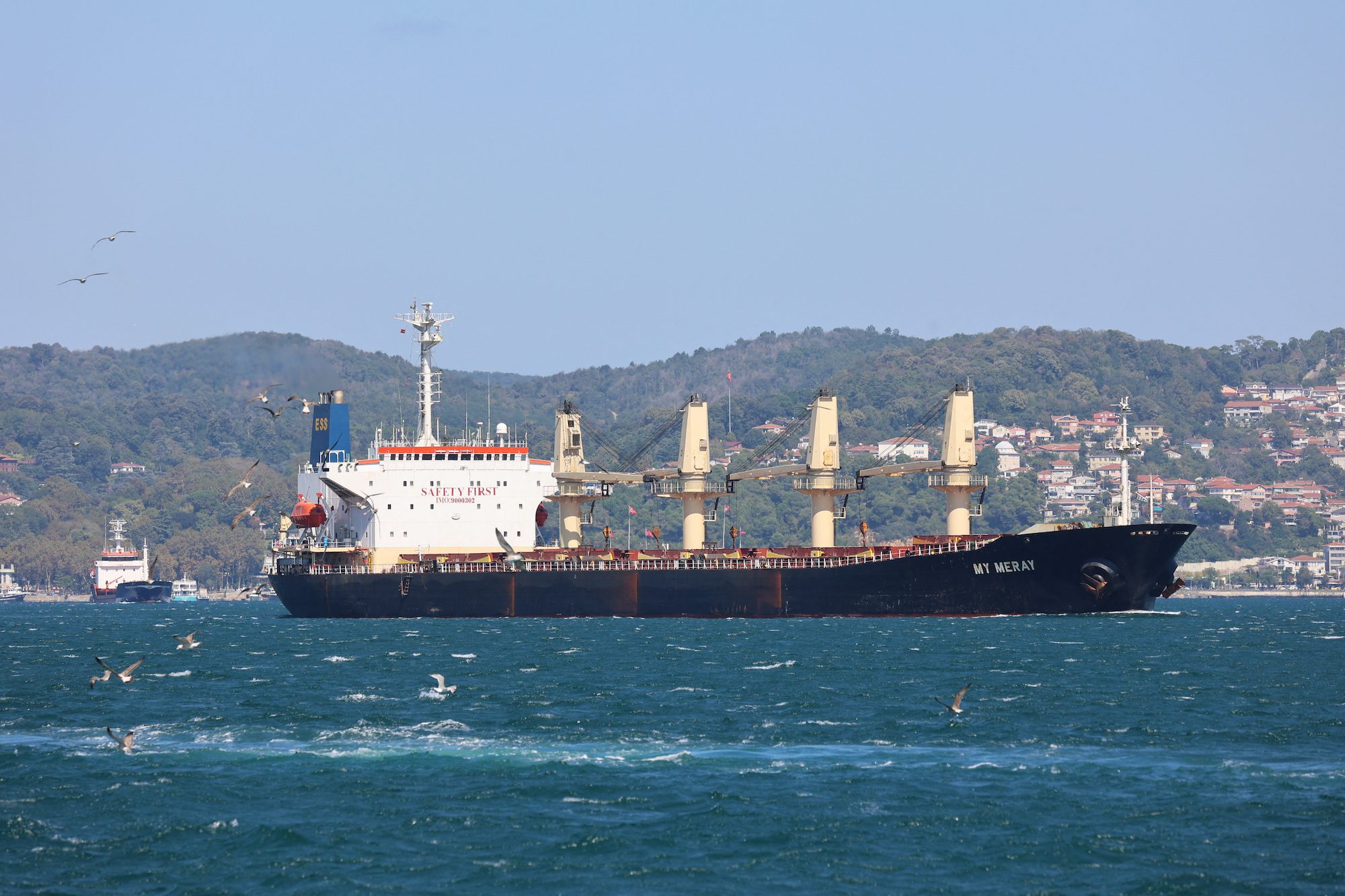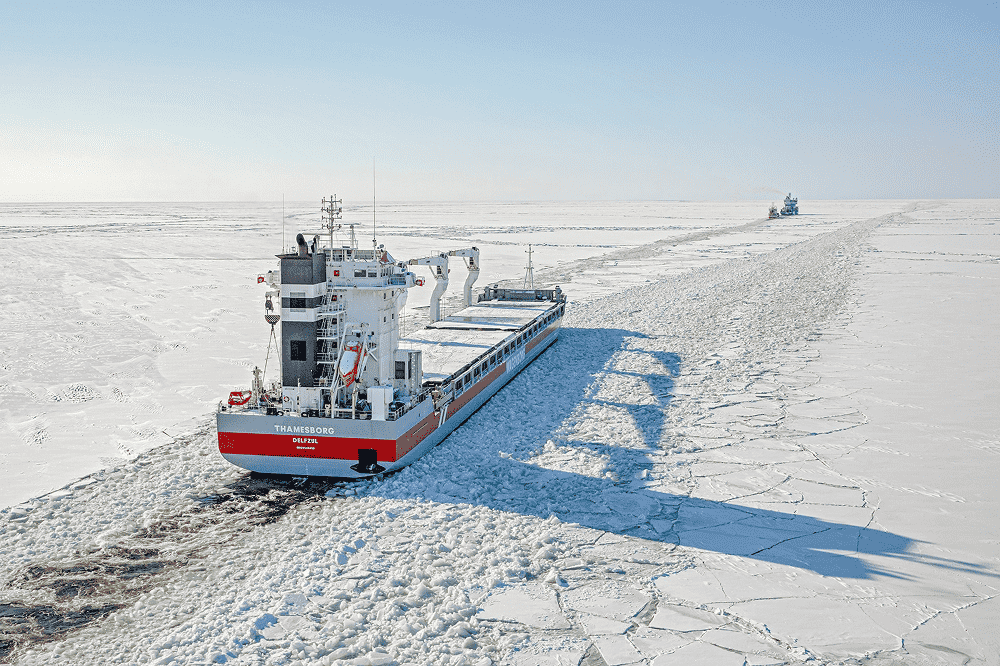By Ali Kucukgocmen and Pavel Polityuk
ANKARA/KYIV, Nov 2 (Reuters) – Russia said on Wednesday it would resume its participation in a deal freeing up grain exports from war-torn Ukraine, reversing a move that world leaders had said threatened to exacerbate global hunger.
Moscow announced the sudden reversal after Turkey and the United Nations helped keep Ukrainian grain flowing for several days without Russian participation in inspections.
The Russian defense ministry justified the change by saying it had received guarantees from Kyiv not to use the Black Sea grain corridor for military operations against Russia. Kyiv did not immediately comment on that, but has denied in the past that it used the agreed shipping corridor as cover for attacks.
“The Russian Federation considers that the guarantees received at the moment appear sufficient, and resumes the implementation of the agreement,” the Russian ministry statement said.
The grain deal, originally reached three months ago, had dispelled a global food crisis by lifting a de facto Russian blockade on Ukraine, one of the world’s biggest suppliers. The prospect that it could fall apart this week had revived fears of global hunger and pushed up prices.
Russia suspended its involvement in the deal on Saturday, saying it could not guarantee safety for civilian ships crossing the Black Sea after an attack on its fleet. Ukraine and Western countries called that a false pretext for “blackmail” using threats to the global food supply.
But Russia’s suspension failed to stop shipments, which resumed on Monday without Moscow’s participation, in a program backed by Turkey and the United Nations. Turkish President Tayyip Erdogan said Russian Defence Minister Sergei Shoigu had told his Turkish counterpart that the deal would resume.
“The grain transports will continue as agreed before as of 12 (pm) today,” Erdogan said while addressing members of his AK Party.
The prices of wheat, soybeans, corn and rapeseed fell sharply on global markets following the announcement, which eased concerns about the growing unaffordability of food.
Insurance companies had paused issuing new contracts, raising the prospect that shipments could halt within days, industry sources said. But Lloyds of London insurer Ascot told Reuters after Wednesday’s resumption announcement that it had resumed writing cover for new shipments.
FUTURE STILL IN DOUBT
“This is quite an unexpected turnaround,” Andrey Sizov, the head of Russia-focused Sovecon agriculture consultancy, said of Russia’s decision.
“Still, the deal remains shaky, as it is now back in guessing mode as to whether there will be an extension or not. With two weeks to go before the extension, the discussion around this topic will apparently continue,” Sizov added.
The deal runs out on Nov. 19 and a European diplomat briefed on the grain talks has told Reuters that Russian President Vladimir Putin was likely to use the possible extension as a way to gain leverage and dominate next month’s G20 summit in Indonesia.
Putin said on Wednesday Russia reserved the right to withdraw from the grain deal if Ukraine violated its guarantees but that if it did so, it would not impede grain supplies from Ukraine to Turkey.
German Foreign Minister Annalena Baerbock said the resumption showed the importance of standing firm in the face of Moscow’s demands.
“This is an expression of how important it is that those who believe in the international order…stand together in these difficult times and do not allow themselves to be blackmailed by Russia,” she told broadcaster Welt.
A senior Ukrainian official who declined to be identified told Reuters that Moscow’s decision was mainly the result of Turkish pressure on Russia.
Ukrainian presidential advisor Mykhailo Podolyak said Moscow had miscalulated. “When you want to play blackmail, it is important not to outplay yourself,” he said.
Ukrainian Infrastructure Minister Oleksandr Kubrakov expressed gratitude for the roles played by Erdogan and U.N. Secretary-General Antonio Guterres.
The United Nations said Guterres “warmly welcomes” the deal and would continue working towards its renewal.
The Russian blockade of Ukrainian exports through the Black Sea since its invasion on Feb. 24 has exacerbated food shortages and a cost of living crisis in many countries as Ukraine is one of the world’s biggest suppliers of grain and oilseeds.
In a Tuesday night video address, President Volodymyr Zelenskiy credited Turkey and the United Nations for making it possible for ships to continue moving out of Ukrainian ports with cargoes.
“But a reliable and long-term defense is needed for the grain corridor,” Zelenskiy said. “At issue here clearly are the lives of tens of millions of people.”
The grains deal aimed to help avert famine in poorer countries by injecting more wheat, sunflower oil and fertilizer into world markets.
RUSSIAN DEMANDS
Turkish Foreign Minister Mevlu Cavusoglu earlier said Russia was concerned about its fertilizer and grain exports, echoing Russian officials in saying ships carrying them could not dock even though the exports were not included in Western sanctions.
There was no mention of any concessions on those issues in the Russian statement on the resumption, but the U.N. statement said Guterres would work to get those obstacles removed.
“The Secretary-General continues his engagement with all actors towards the renewal and full implementation of the Initiative, and he also remains committed to removing the remaining obstacles to the exports of Russian food and fertilizer,” U.N. spokesman Stephane Dujarric said.
(Additional reporting by Ezgi Erkoyun in Ankara and other Reuters bureaux; Writing by Philippa Fletcher; Editing by Angus MacSwan and Peter Graff)
(c) Copyright Thomson Reuters 2022.
Editorial Standards · Corrections · About gCaptain
This article contains reporting from Reuters, published under license.

 Join The Club
Join The Club












